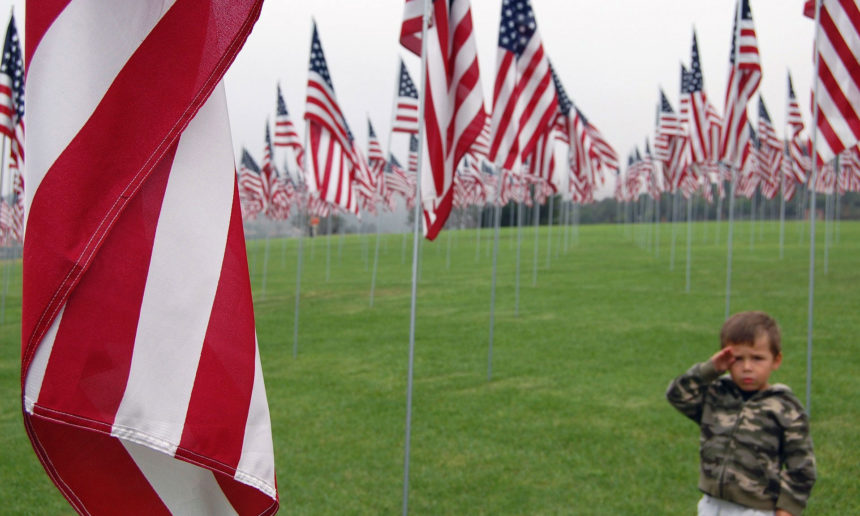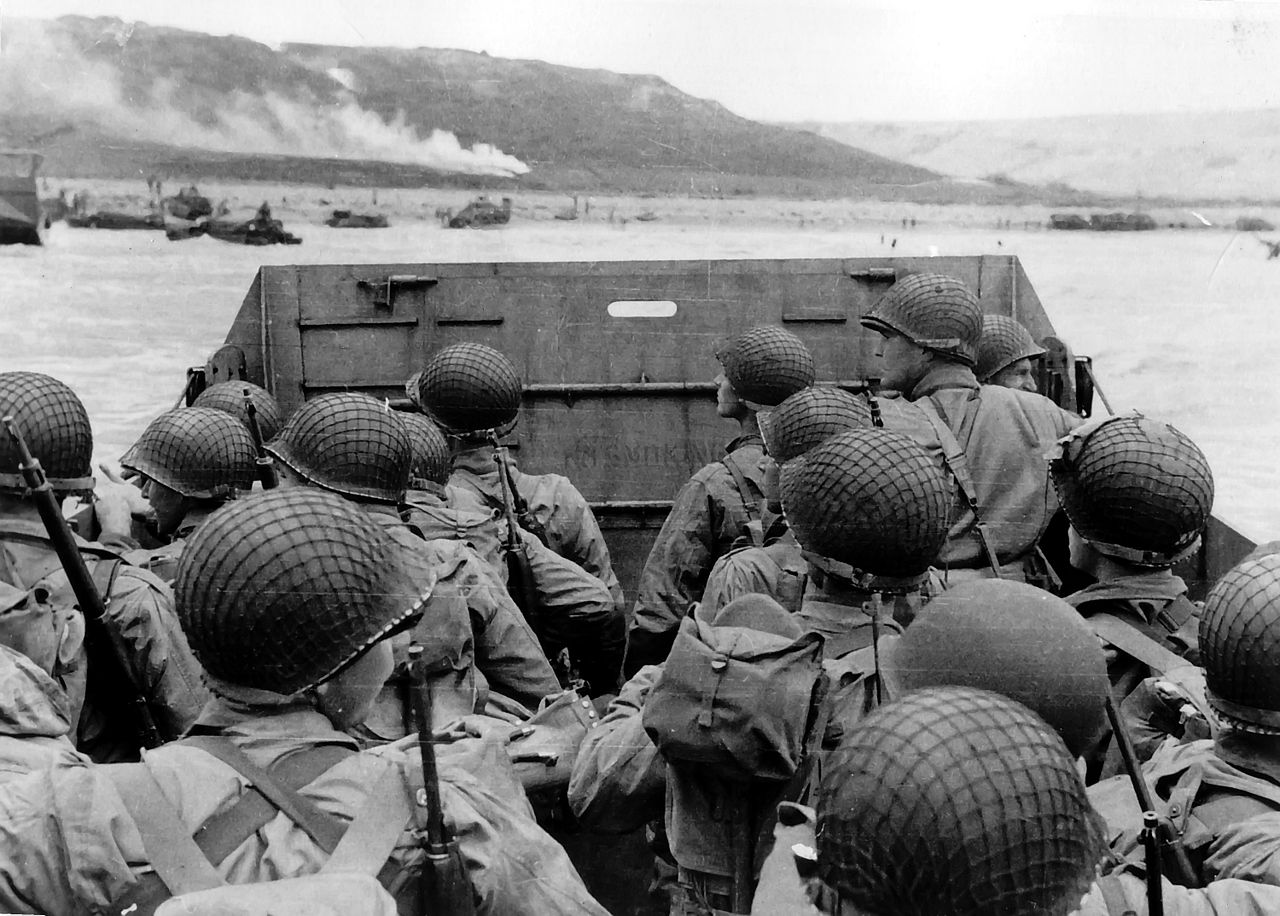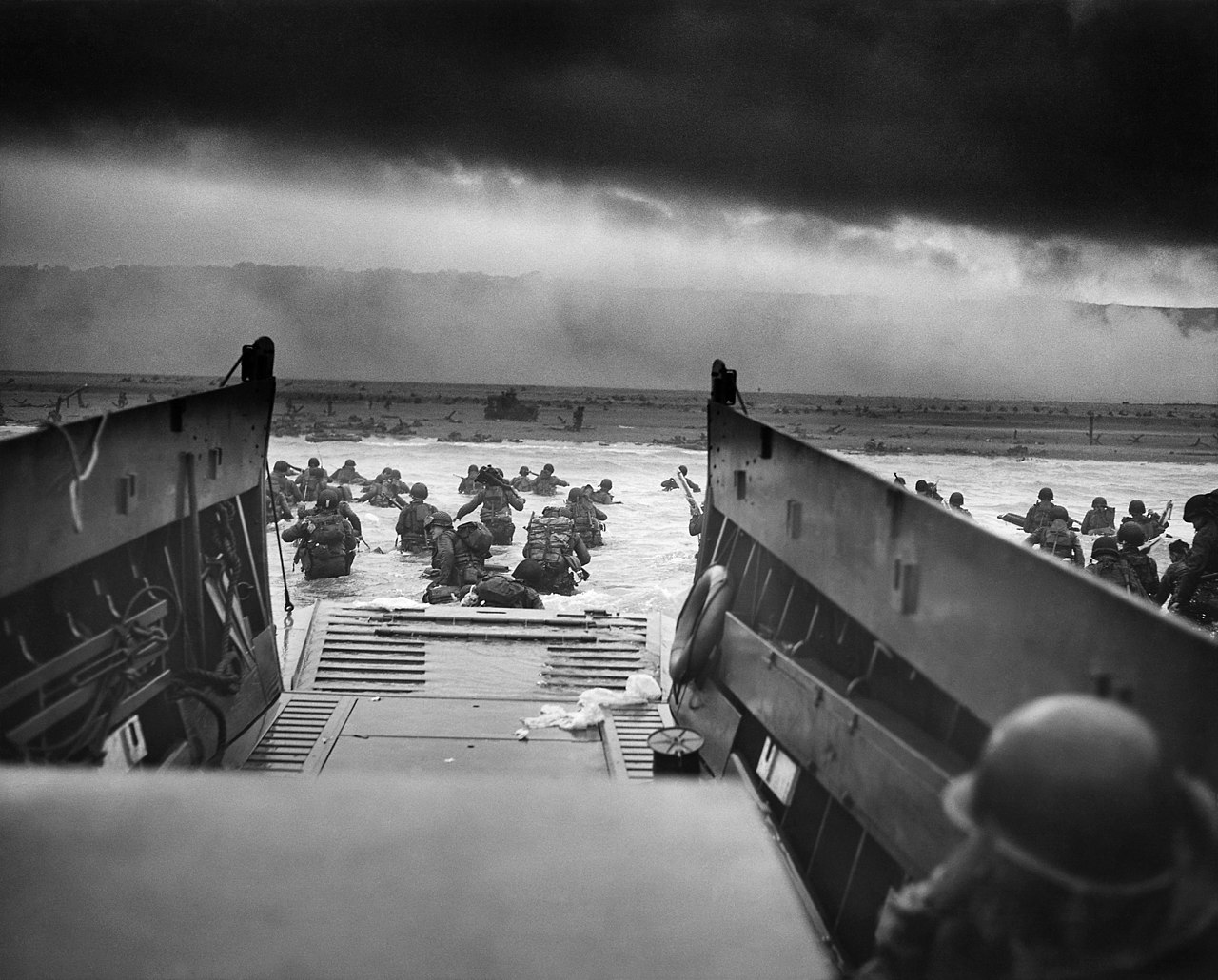Memorial Day and D-Day commemorations remind us the high cost of preserving us a nation through selfless acts and ultimate sacrifice by men and women of our armed forces. Hold them in remembrance for their dedication in defending our God-given freedom, lest we forget.
The Importance of “Lest We Forget”
Before the phrase “lest we forget” was commonly associated with wars and the military, it was popularized in a poem called “Recessional” composed in 1897 by Rudyard Kipling for Queen Victoria’s Diamond Jubilee. Some sources say Kipling wrote the poem to convey a message that “earthly conquests pale in comparison with the mighty works of God.” The phrase appears eight times with special emphasis on the danger of failing to remember. Here are the first two stanzas:
God of our fathers, known of old,
  Lord of our far-flung battle line,
Beneath whose awful hand we hold
  Dominion over palm and pine —
Lord God of Hosts, be with us yet,
Lest we forget—lest we forget!
The tumult and the shouting dies;
  The Captains and the Kings depart:
Still stands Thine ancient sacrifice,
  An humble and a contrite heart.
Lord God of Hosts, be with us yet,
Lest we forget—lest we forget!
According to some sources, Kipling most likely based his poem on concepts found in the Bible emphasizing the theme “that if a nation forgets the true source of its success [the ‘Lord God of Hosts’ and His ‘ancient sacrifice’ of ‘a humble and contrite heart’] – its military or material possessions will be insufficient in times of war.”
Probable sources for Kipling’s poem are:
Deuteronomy 4:7: “For what nation is there so great, who hath God so nigh unto them, as the LORD our God is in all things that we call upon him for?”
Deuteronomy 4:8: “And what nation is there so great, that hath statutes and judgments so righteous as all this law, which I set before you this day?”
Deuteronomy 4:9: “Only take heed to thyself, and keep thy soul diligently, lest thou forget the things which thine eyes have seen, and lest they depart from thy heart all the days of thy life: but teach them thy sons, and thy sons’ sons;”
Also in Deuteronomy:
Deuteronomy 6:12: “Then beware lest thou forget the LORD, which brought thee forth out of the land of Egypt, from the house of bondage.”
Kipling’s reference of “thine ancient sacrifice” is based in Psalms:
Psalms 51:17: “The sacrifices of God are a broken spirit: a broken and a contrite heart, O God, thou wilt not despise.”
Memorial Day 2021
While most Americans enjoyed a long Memorial Day weekend over a barbecue grill or taking a dip in a swimming pool, many commemorated the importance of the day. Families and communities around the country found time to honor the hundreds of thousands of military men and women that fought and gave their lives for our God-given freedom. These heroes epitomize what America is all about, the stuff of bravery, courage, and ultimate sacrifice for a cause greater than themselves.
Buried in 26 American military cemeteries across the globe, there are no appropriate words of admiration worthy to describe their great sacrifice. Their graves marked with simple crosses and Stars of David stand as silent sentinels to remind us of the cost of freedom, lest we forget.
Take a moment to reflect on their sacrifices by watching this virtual ceremony of Memorial Day 2021 video produced by the American Battle Monuments Commission.
“Duty, Honor, Country”
Our men and women in uniform, whether in times past, present, or future, embody what U.S. Army General Douglas MacArthur described in an unforgettable speech. A man of character beyond reproach, he delivered an inspiring tribute to West Point cadets in 1962, including these excerpts:
“Duty, Honor, Country” — those three hallowed words reverently dictate what you ought to be, what you can be, what you will be. They are your rallying point to build courage when courage seems to fail, to regain faith when there seems to be little cause for faith, to create hope when hope becomes forlorn.”
“They teach you to be proud and unbending in honest failure, but humble and gentle in success; not to substitute words for action; not to seek the path of comfort, but to face the stress and spur of difficulty and challenge; to learn to stand up in the storm, but to have compassion on those who fall; to master yourself before you seek to master others; to have a heart that is clean, a goal that is high; to learn to laugh, yet never forget how to weep; to reach into the future, yet never neglect the past; to be serious, yet never take yourself too seriously; to be modest so that you will remember the simplicity of true greatness, the open mind of true wisdom, the meekness of true strength.”
“In twenty campaigns, on a hundred battlefields, around a thousand campfires, I have witnessed that enduring fortitude, that patriotic self-abnegation, and that invincible determination which have carved his statue in the hearts of his people. From one end of the world to the other, he has drained deep the chalice of courage.”
“The soldier, above all other men, is required to practice the greatest act of religious training: sacrifice. In battle and in the face of danger and death, he disposes those divine attributes which his Maker gave when he created man in His own image. No physical courage and no brute instinct can take the place of the divine help which alone can sustain him. However hard the incidents of war may be, the soldier who is called upon to offer and to give his life for his country is the noblest development of mankind.”
“Others will debate the controversial issues, national and international, which divide men’s minds. But serene, calm, aloof, you stand as the Nation’s war guardians, as its lifeguards from the raging tides of international conflict, as its gladiators in the arena of battle.”
“This does not mean that you are warmongers. On the contrary, the soldier above all other people prays for peace, for he must suffer and bear the deepest wounds and scars of war. ”
You can read or listen to the full tribute by General Douglas MacArthur, here.
77th D-Day Remembrance
Ceremonies commemorating the 77th anniversary of D-Day took place in France this year despite COVID-19 restrictions. One of the ceremonies was held at the Normandy American Cemetery and Memorial in Colleville-sur-Mer, perched high on a bluff overlooking Omaha Beach. This stretch of beach was the bloodiest of five landing sites along the Normandy coast that took place on June 6, 1944.
Americans suffered over 2,000 casualties at Omaha Beach but by day’s end, 34,000 troops had landed. Overall, 156,000 Allied troops landed in the Normandy invasion that day with an estimated loss of 4,000 lives. D-Day turned the tide of WWII, resulting in the liberation of Western Europe in less than a year. Watch live footage of the D-Day Invasion:
On Sunday, June 6th, 2021, Dr. Peter Colon of The Friends of Israel ministries, presented a commemoration of the D-Day anniversary with the portrayal of a chaplain who was one of a handful sent with troops to storm Omaha Beach. Watch this thought-provoking D-Day presentation here.Â
==> Learn more about military chaplains who are Called to Serve God and Country.
==> Also read The Guarantee of Everlasting Life.




